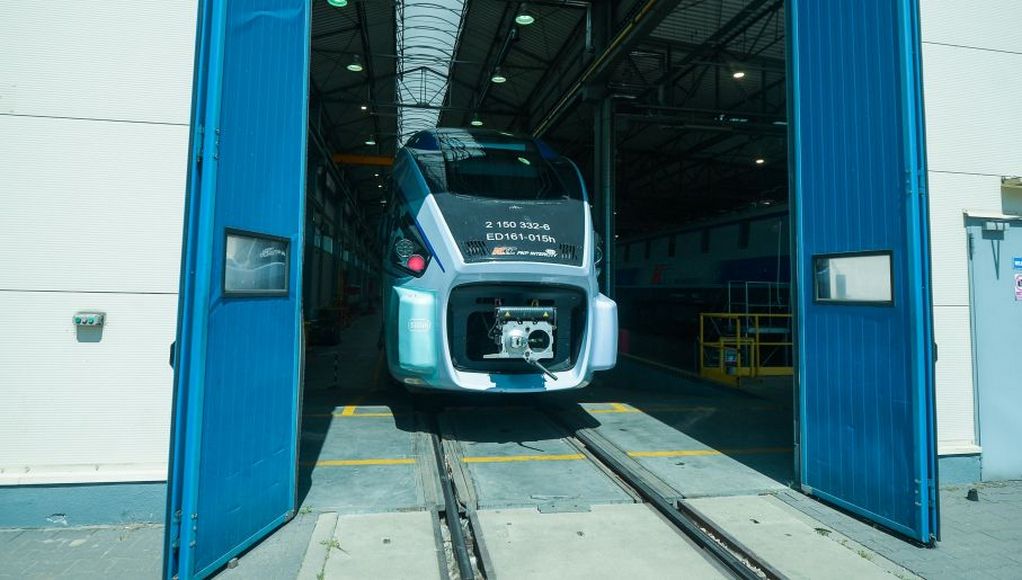PESA has received approval to operate its first hydrogen locomotive. As the company boasts, this is the first such approval in the world.
The approved locomotive is equipped with a zero-emission hydrogen drive. PESA Bydgoszcz SA has been working on such a vehicle for a few recent years.
It is powered by four engines with a power of 180 kW each. Energy for them is provided by two hydrogen cells, with a power of 85 kW, manufactured by Ballard.This is a system that generates electrical voltage through a chemical reaction between hydrogen and oxygen from the atmosphere.
The hydrogen itself is drawn from tanks with a total capacity of 175kg. One refueling is sufficient for 24 hours of continuous operation.
As reported, work on the implementation of hydrogen propulsion in rail vehicles began in 2019. At that time, it was decided that the first machine would be the SM42-6Dn shunting locomotive.
The availability of another type of propulsion system on trains is satisfying, as it opens up new possibilities – for example to carry out locally emission-free journeys where there is no overhead line above the tracks.
This is a breakthrough, as hydrogen technology is not yet so common. In August 2022, the first rail line entirely run by hydrogen-powered trains debuted in Bremervörde, Lower Saxony, where the route’s 15 diesel trains are getting gradually replaced. The widespread use of hydrogen for fueling rail transportation is a basic element of the proposed hydrogen economy.
At the moment, however, it is difficult to speak of a “green drive”, because in Poland the electricity needed to electrolyze water (i.e. produce hydrogen) is obtained from coal-fired power plants. PESA is probably hoping that this will change one day, as it has already announced further hydrogen projects.


Recent Posts
Ammonia
Azane Unveils New Subsidiary to Drive Ammonia Bunkering Development Oslo, Norway
Fuels Heavy oils
Public sector carbon emissions fall to 3.7 mn tonnes in Singapore
Fuels Heavy oils
UltraTech Cement targets to achieve 85% green energy
Fuels LNG
JCB unveils hydrogen combustion technology